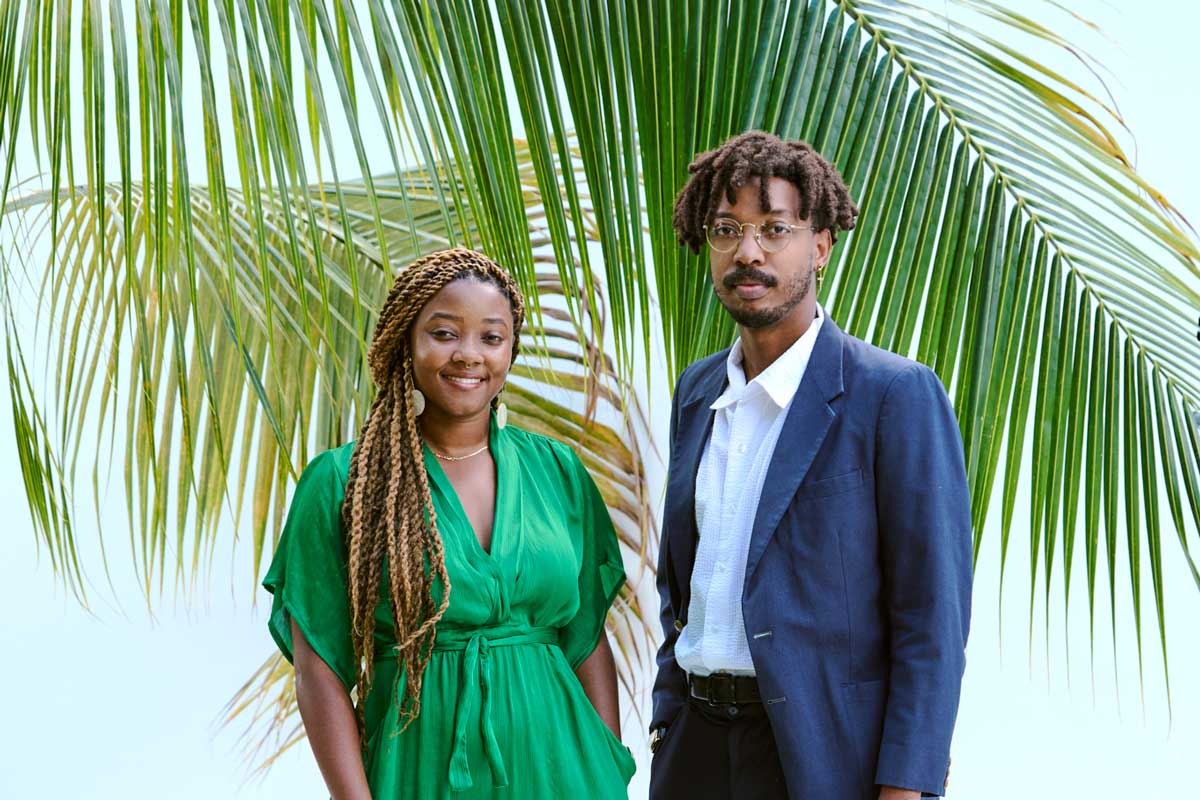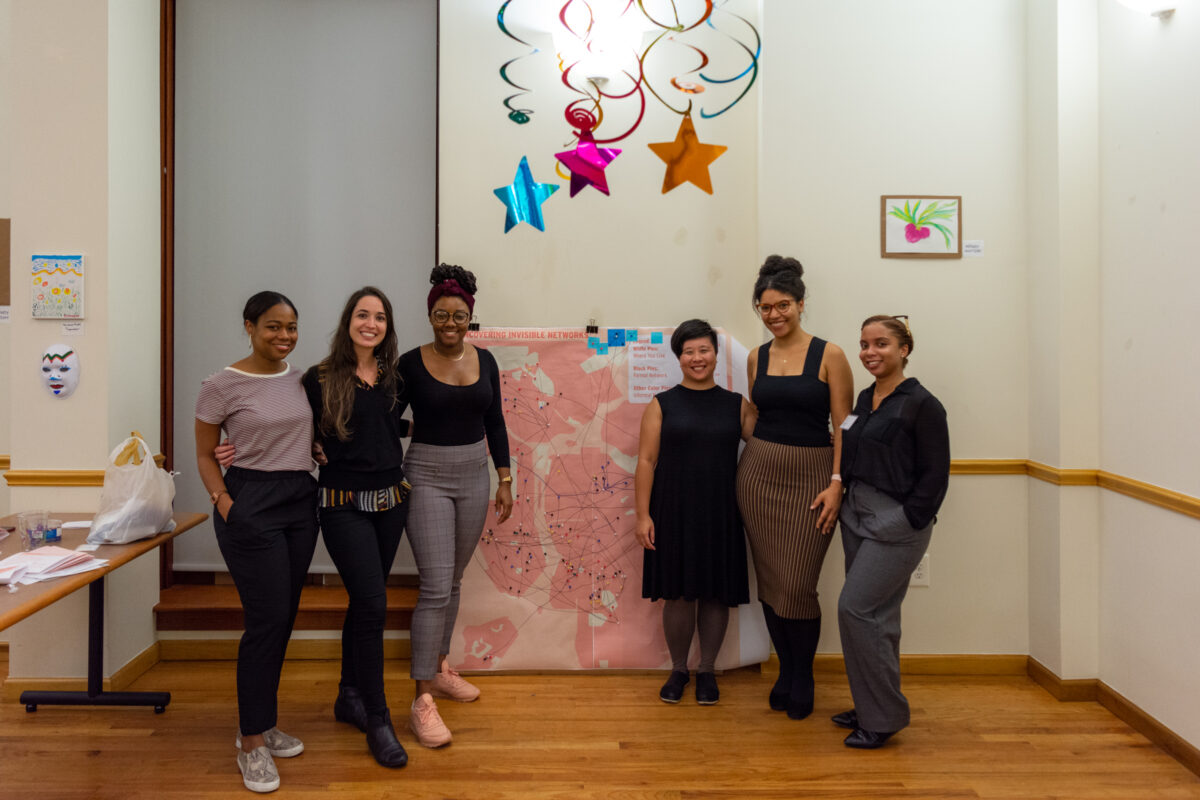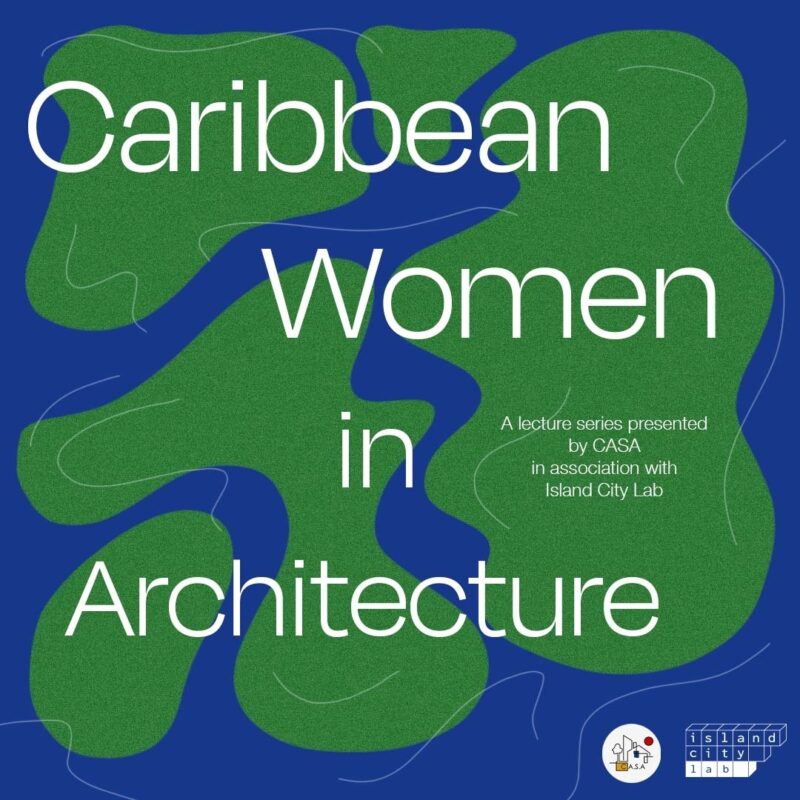
For this month’s Fellow Spotlight, we spoke with Jhordan Channer and Dorraine Duncan, co-founders of Island City Lab.
Island City Lab is a think-tank that confronts the defining issues affecting the built environment of island nations co-founded by Urban Design Forum Fellows Jhordan Channer and Dorraine Duncan. Aiming to develop a network of urbanists, Island City Lab sees the need for the creation and dissemination of best practices in the urban development of Caribbean towns and cities.
A major goal for the organization will be to convene stakeholders and break down silos across design, real estate, transit, housing, sustainability, and policy sectors to share new ideas around major urban issues and interrogate commonly held ones.
Below, we talk with Jhordan and Dorraine about what’s to come from Island City Lab.
At Island City Lab, you’re convening stakeholders and sharing knowledge around critical issues affecting island cities. Why is there a need–specifically in the Caribbean–for a center that encourages a network-based approach to urban issues?
DD: Right now–especially in the climate space–there is a lot of attention on the islands. There is this ideology that the islands are the “canary in the coalmine.” That as the populations on the frontlines we will be experiencing the impacts of climate change the fastest and the hardest. And that only from observing our experiences, people outside the region can then learn what to expect and hopefully act.
This type of attention means that most of the research and expertise still comes from outside the region and relies on external dollars. Yet, there are lots of talented people here who understand the way our cities operate and the particular vulnerabilities that we face. The real hope is that we’ll build this network of researchers and start collating this knowledge. We want to be the space where that research and experience is held, housed, and disseminated, which is important in order to achieve what we want to see in the Caribbean.
JC: What we also want to do is create more transparency around the processes that produce our cities and environments and challenge ideas about who has a voice in how our cities form. One thing we really emphasize is tapping into lived and learned experience and creating connections across class and professional barriers. Tapping into the people who are experiencing the environment is as important as the people who are studying it from a high level.
How did your experiences in New York lead you to create Island City Lab?
DD: We moved to New York in 2018 and very early on became embedded in these multidisciplinary networks of people who work on the built environment. Whether it was through our jobs or through professional societies like DivComm, we got very used to the idea of working with a broad slew of professions across the sector. Tackling urban challenges necessitated a broad, silo-breaking approach. Seeing that work in New York got us into thinking what that approach would look like for the Caribbean.
JC: New York has really strong civil society groups which expanded our ideas about our role as urbanists. During the Forefront Fellowship, we got to interact with a lot of these groups for our projects. Groups like Blackspace, for example, really fostered us as urban professionals. Blackspace’s manifesto is really foundational to how we think about Island City Lab.

You were both Forefront Fellows–Jhordan in 2020 and Dorraine in 2019. Was that experience helpful in informing your approach?
DD: Forefront was a very unique and transformative experience for us. The power of convening people is underestimated. The simple benefit of saying, ‘alright, I’m creating a space for you guys to come here together and learn and explore,’ is a big deal. So many people are excited to explore urban issues; different, or broader than the issues they focus on for their jobs and unfortunately a space for that type of urban learning doesn’t really exist regionally in the Caribbean. The other benefit of creating this type of space is that you realize the limitations of your own skills and profession and become a bit humbled.
JC: Even as a methodology, this network based approach that we learned in Forefront taught us that you don’t always have to be the expert, but you can talk to the expert. That kind of approach is really inspiring. We can apply it to the Caribbean – there’s a lot of expertise on the ground here. This can create real transformation in the governance of our urban environment.
How are you hoping to expand interest in this work to the general public?
JC: Our vision is to be a resource for good urban governance, specific to our context, and really bridge this gap across the Caribbean. Each person living in a city is an urbanist and they should have a say on how their environments are produced. We really want to think about the Caribbean regionally and foster this network for people engaged in urban life. To build a base of urban research that acts as a repository of assets that people can tap into that is digestible and understandable by the public as well as specific audiences.
DD: Being a Fellow, there is an understanding that there is a strength in this network. The most exciting and inspiring part of UDF is your ability to extend that network in service of your Fellows and their aspirations and pursuits. I really hope that we’re able to do that at Island City Lab as well. I hope we can make those connections across the region because it is a very useful resource and something we are dedicated to growing and developing.

Tell us about the series on Caribbean women in architecture and what you have coming up in the next few months?
JC: The Caribbean Women in Architecture series is a collaboration between us and the Caribbean Architecture Students Association (CASA), a student group within the Caribbean School of Architecture. When I was teaching there, there was no real space for us to have professional discourse around the state of practice. With this series, the students want to bridge the gap between academia and professional practice and another gap between the islands on issues affecting the profession of architecture. These are intelligent, visionary students, and we believe leadership comes from diverse places. I really want the Lab to help youth leaders create a platform for themselves.
DD: The other event series we are planning is “Water is Life: Climate Adapted Cities.” The IPCC reports say that water security is going to be the defining issue for small islands. With this series, we’re trying to bring in different professionals to discuss solutions to island level water security. We want to explore how updated building codes, zoning, density laws, and green infrastructure can help protect, preserve and recharge our water resources. Solutions to these challenges already exist already in the Caribbean. For example, Bermuda has mandated rainwater catchment in all homes for decades. There are islands out here that have very innovative solutions and indigenous approaches and designs. We’re excited because we’re looking across the Caribbean for innovation and expertise and discussing in what context these solutions may be feasible for other islands.
"As urbanists, we talk a lot about climate migration, and it can seem very abstract and long-term. However, it is a reality now in the Caribbean."
What lessons do you think that practitioners here in New York could probably learn from island cities?
JC: One is that New York is a major financial center, so it can produce a lot of funding and innovation hubs for technology and large infrastructure projects that are advertised as the solution to urban ills. However, we’re finding in our conversations on the Caribbean that the key is really about good governance of our urban environment and the institutions that manage it. With limited resources, the first reaction here is usually not to spend money, but to think about how to strengthen the institutions that manage and steward the urban environment. New York could really learn from the Caribbean in this sense.
I also think New York is going to learn that if the island situation isn’t sorted, immigration from our islands into US cities is going to be major. Investing in research around loss and damage in the Caribbean is extremely important.
DD: As urbanists, we talk a lot about climate migration, and it can seem very abstract and long-term. However, it is a reality now in the Caribbean. It’s a very dangerous confluence of climate-based migration followed by disaster capitalism. Barbuda, an island in the Eastern Caribbean where the majority of the population has been displaced because of Hurricane Irma now has to fight off billionaire real-estate investors who are snatching their land to set up luxury hotels. You can almost imagine hearing a story like this in NYC too, where displacement of the marginalized is worsened by extreme vulnerabilities to weather combined with extreme unfettered wealth. New York may not be a [Caribbean] island, and is definitely not as vulnerable as we are – but the same climatic and economic forces that affect us will definitely also impact you all.
What are the personal habits and activities that help inspire and motivate you on a day to day basis?
DD: We’ve moved to a bit of a more suburban lifestyle in Jamaica that is very different from our Flatbush apartment. We have a lot of yard space and we were like, ‘what are we going to do?’ So, we took up gardening, and it’s been the most therapeutic and meditative act. As someone who is trying to start an organization, patience is something that I’m not very good at…!
JC: Gardening really taught me to foster and anticipate things. I feel like our successes in gardening filters into other successes and teaches you how to deal with failure. It’s an amazing metaphor.

Anything you’d like to share with the UDF network?
DD: Both Jhordan and I were on student visas for the entire time we were in the US. We applied for work visas and both of us were unsuccessful. In New York, there are so many immigrants doing really exciting things, but their immigration status is so fickle. It’s based on policies, but also luck of the draw. Being unsuccessful and having to leave the country was a shock to our system. Jhordan and I were starting to make so many plans for our future in NYC and then all of that was suddenly taken away from us. It was sad, but that’s a common story for lots of immigrants across the US. That kind of heartbreak led us to this moment. I feel like it’s valuable to know that after that sadness there are opportunities to find your footing back home.
JC: Also getting reacquainted with your city–the city that you were born in–is an incredible process. Understanding the city again, loving it for taking care of you before you went away, and ultimately wanting the best for it… in a way, that inspired us to start Island City Lab. Immigration is part of the Caribbean experience–if you’re privileged enough to do so–and now we want to foster what we have here. I want that for all Caribbean people.
Dorraine Duncan is a city planner and policy analyst that explores issues at the intersection of environmental sustainability and equitable economic growth. Her research and analytical skills have been applied to renewable energy, climate resiliency, food security, open space development, and conservation in the United States, Mexico, Singapore, and Jamaica.
Jhordan Channer is an urban designer who borrows a set of tools from planners, policy analysts, and activists to engage with urban issues. He has applied this toolkit in the design and research of public space, public infrastructure, and architectural projects in Kingston, New York City, and Atlanta.
To learn more about Island City Lab, and sign up for their upcoming events, check out their social media, and sign up for their newsletter here.
This conversation is the first of our Reconnect Conversations focused on building community at the Forum through conversations, events, and gatherings for our Fellows. This interview has been edited and condensed for clarification purposes.